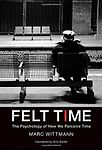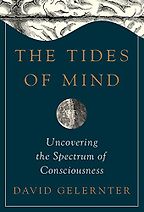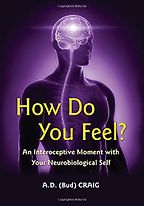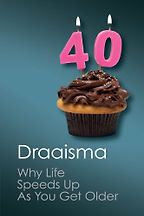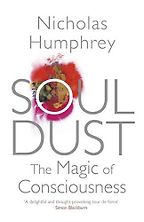What is the big unanswered question when it comes to time?
Subjective time is still the great mystery. If you think about other faculties of the mind, like memory, motor-performance, seeing, hearing, smell, everything, there’s a consensus of different scientists and experts on how the basic processes work, how the brain and how the mind functions in each specific process. But not so in subjective time.
Perception of time is, of course, very important in everyday life. If you are in a waiting situation, you really feel subjective time, and it is very much involved with your emotions. It has something to do with being more or less impulsive. Being able to wait is also important for success in life, because if you are not able to wait then you miss opportunities. You have to be able to work at this moment, although you could watch TV or go online and do some fun stuff. You have to delay gratification, and this all has to do with subjective time.
Even in psychopathology, in depression and schizophrenia, one of the key issues patients complain about is time. For example, you could say depression is even stronger in boredom. We already know how difficult and how painful boredom can be, so we have a glimpse of what, maybe, depressed people feel. In depression, time is a crucial and horrible thing that people experience, feeling that it is not passing at all. So there is a wide range of applications for time perception studies, but scientists still don’t understand yet what subjective time is about.
Your own research is also into time perception and altered states of consciousness such as during meditation and drug use. What did you find?
This goes back to the basic idea which I try to present in my book: that subjective time is based on your feeling of self. The classic situation in boredom is you are in a waiting situation. And what happens during a waiting situation? You feel yourself and your bodily self very strongly. Time does not pass, or it passes very slowly. In a flow state, or when you are writing something, reading something, when you are distracted from time, then time passes very quickly. What happens? You’re absorbed in your activity; you don’t feel yourself, and time moves very quickly. So subjective time and your bodily self are very intricately related.
“For an expert meditator, suddenly you have a switch and you don’t feel time anymore”
What happens in other states of consciousness, such as meditation, is that whereas you might feel yourself and time very strongly at the beginning of a meditation induction—you relate to your bodily self, you’re breathing in and out, you are very much in the present moment—if you go through this period, for an expert meditator, suddenly you have a switch and you don’t feel time anymore. Some people say time has stopped, time has no meaning anymore, and you don’t feel yourself anymore. That’s why other states of consciousness are so interesting. It’s similar with drugs.
Tell us about that.
I did a study at a university clinic in Zurich, where they have psilocybin, the psychoactive substance found in magic mushrooms. They can use it for clinical research in healthy subjects, who are pre-screened very thoroughly so that they have no history of psychiatric problems in the family, but are stable personalities. In my research, we looked at time perception. There was a grouping of subjects’ reports about the loss of the sense of bodily self and a distortion of subjective time. Again, you find a correlation between ‘my body feels weird’ and time being totally distorted. We also had them judge time durations that were controlled in conditions where they didn’t have the drugs, which show that their time perception was distorted.
Any undergraduate stoner will tell you that time moves differently when you’re high—but are you saying that the science backs it up?
Yes, of course you could say this is what everybody knows anyway, but we are now looking at the relationship between time and the self. We can scientifically show that people have distortion of time, and, at the same time, they have distortion of the self. These are correlated. This is in the context of altered-stated consciousness, but perceptions of self and time often regulate with each other.
What’s the relationship between time perception and decision making, which is another area you have researched?
For example, the question is: would we rather have something now or later? If it is something nice, we would of course rather have it now than later. We are very much present-orientated; we are not so much looking into the future. Then you can also devise experiments: would you rather have a smaller reward now, or a larger reward later? Now it becomes a more difficult choice, because if you have a smaller reward right away then you lose the opportunity to get a larger reward later. So you suddenly have to make a decision in a temporal context. What is shown is that more impulsive individuals would rather have a smaller reward now than a bigger reward later. And you can apply this to everyday experience in life.
Get the weekly Five Books newsletter
The classic example is the marshmallow test. In the 1970s they did a study where they took a marshmallow, put it in front of a small child and said, ‘You can have this marshmallow right away, just eat it if you want, but if you are able to wait for 10 minutes while I go out and you don’t touch this one marshmallow, then you get a second one and you can have both.’ Some ate the first one, and others waited for the second, delaying gratification.
I’m sure I would eat the first one. The phrase that we keep returning to is ‘time is subjective’. Was it Einstein who first formulated it with his special theory of relativity or has it always been intuitively known by anyone who has ever thought ‘this day is going really slowly’?
Of course, it’s everyday knowledge. If you’re bored, time drags. If you are entertained—if you are having a super conversation with a friend, or if you are watching an exciting movie—time flies by. Einstein, in his relativity theory, was talking about something else. He was talking about physical time, meaning that approaching something like the speed of light you will have differences in objective physical time. But subjective time is also relative, meaning it is dependent on so many factors, mostly related to emotions. Your emotional state modulates your subjective time.
Let’s begin on your recommendations with The Tides of Mind: Uncovering the Spectrum of Consciousness (2016) by David Gelernter. Gelernter is a professor of computer science at Yale, with a towering reputation in that field. What does this book tell us about consciousness and time?
Gelernter is an expert in artificial intelligence and robotics. What he shows in The Tides of Mind is how fluctuating consciousness is. Consciousness is constantly ebbing and flowing during the day. He shows how we can be very alert and focused on one side of the mental spectrum when we’re concentrating, say in the discussion we’re having now, or in solving a problem. But we also have, on the other side of the spectrum, other states of mind where memory comes up, emotions come up, where we are not focused at all on what is happening in the world, but we’re focused on our inner feelings, our inner world. This comes back to my time perception research, where I argue time consciousness is related to emotional consciousness, which is related to your bodily self.
“The high-alert state of mind, of problem-solving, is just one tiny aspect of consciousness”
In a very poetic way, and that’s why I like the book, it is a meditation about different states of mind. It goes from dreaming to awakening, to mind-wandering, daydreaming, playing sport and being totally alert and concentrated. He shows also, with examples from literature such as Aristotle’s Poetics, how the mind changes over the day. He criticises researchers, psychologists, neuroscientists and scientists in artificial intelligence who always concentrate just on this one high-alert state of mind of problem-solving. That is just one tiny aspect of consciousness, and 95% of our daily consciousness is totally different in these fluctuations.
Is Gelernter arguing that artificial intelligence could replicate human consciousness, including perception of time?
Yes, he says that artificial intelligence could have something like this modulation of mind because then it would be able to solve totally different problems. Problems of creativity are often solved when you are daydreaming and wandering off, not even realising where you are, and suddenly you have a perfect idea. Big problems, even in science, have been solved in this non-focused way of daydreaming, or having emotional analogies, and then suddenly coming up with a solution. This is a part of decision making. Gelernter gives examples of the best scientists and Nobel Prize-winners who suddenly had a breakthrough idea. This, he says, would also have to be implemented in an artificial intelligence system, if we really wanted to solve the consciousness problem for artificial agents.
That’s a wonderful idea: a robot that can daydream.
Yes, and feel emotions.
Next you’ve chosen How Do You Feel? An Interoceptive Moment with Your Neurobiological Self (2014) by Bud Craig, a psychology researcher. What are his findings about how we experience mental states, and how does that relate to time?
Bud Craig is a functional neuroanatomist, so for his whole career he has worked on body processes, on the signals that come from the periphery of the body—from interoception, from gut feeling, from the heart, from the lungs—into the brain. And as he shows, in humans and apes, into the insular cortex. The insular cortex is the primary interoceptive cortex, meaning it is the primary area in the brain that catches signals from the body and integrates them into motor processes. So as you feel yourself sitting on your chair, that is all insular cortex processing.
“So as you feel yourself sitting on your chair, that is all insular cortex processing”
This is related to my research because I showed with functional images that brain activity during time perception is strongly correlated to insular cortex activation. This is what I wrote in my book: that we perceive time as being in the outside world, but the subjective component of time is not in the outside world—you could say it is felt by ourselves, our bodily feelings. So I relate my work to Bud Craig’s to interpret my insular cortex findings related to time perception, because this gives the interpretation that our bodily feelings are the basis for subjective time.
Where in the brain is the insular cortex, and how possible is it to say: this squidgy brain matter is where we perceive time?
You could say it is related to the feeling of the passage of time. So it is not so much related to millisecond timing of tapping or in-language processing where we have to be able to discriminate everything in short milliseconds of duration. But to feel conscious of time, to feel the passage of time, there are also other neuroimaging studies which show how important the insular cortex is in this respect. The insular cortex is on the upper layer of the brain, the cortices layer. If you opened a skull and looked into the brain, you would see the cortex but not the insular cortex. You would have to dig on both sides, left and right, into the fissures, and it is hidden a little below. If you opened the fissures you would see it pop up, like an island.
Have you seen it?
I have only seen it through functional imaging. I’ve seen it getting active, but only functionally, through the imaging system.
The title of your third selection might ring true to some readers: Why Life Speeds Up as You Get Older: How Memory Shapes Our Past (2004) by Douwe Draaisma. Can you explain what Draaisma means by that phrase and if the science of time perception backs it up?
He gives a very poetically formulated answer, founded in everyday experience, to how memory processes define your subjective time over longer time scales. If at Christmas you think: ‘wow, it’s Christmas again already! This year has passed so quickly,’ well, that is a classic adult perception of time. It rushes past so quickly as compared to all our memories of summer vacation at school. It was nearly eternity between each summer at school. Now, even if you go for two weeks on vacation, comparably it also passes quickly.
“In childhood and youth, everything has this impression of novelty”
The answer to this is related to memory. We get more and more routine in our lives. In childhood and youth, everything has this impression of novelty. Everything happens for the fist time: the first kiss, the first time drinking a beer in a pub, the first time going on vacation without parents. Everything from a developmental psychology standpoint is important because we have to learn to be adults, and we develop. Just imagine one year of development for a 14-year-old: there are so many changes going on, biologically and psychologically. Or think about a 12-year-old who’s still a child and a 15-year-old who is nearly an adult. There are just three years in between. Now compare three years in your life between 41 and 44. It all becomes more routine and we can’t escape this routine mode of perception. Even if you’re going to an exotic country you’ve never been to before, it might be the thirteenth time that you’ve been to a new country.
So you won’t have these experiences of novelty you had in childhood and young adulthood. As you move away from your parents, study and find new friends, find a partner, marry, have your first child, and so on, and so on. This all has an effect on memory because everything that is new has a saliency, and all experiences lose this sense of saliency and then are not recorded thoroughly in memory anymore. If you look back, because subjective time retrospectively depends on your memory entries, you have less that you’ve recorded because less was exciting, less was novel, and so it feels as if time passed more quickly.
That’s fascinating. The mysteries of time and memory that have long haunted novelists are now being solved by neuroscientists. Where does that leave The Magic Mountain, by Thomas Mann, your fourth choice?
Thomas Mann has a chapter: ‘Excerpts on Subjective Time.’ It’s like an essay in the middle of The Magic Mountain where he has an actuarial author explain to the reader how subjective time works. Almost everything that I have said and what Douwe Draaisma says was already voiced by Thomas Mann, in 1924.
“In the ever-repeating sameness of the Magic Mountain Resort, time accelerates because all novelty is lost”
The protagonist of the book, Hans Castorp, visits his cousin in a clinic in Switzerland, in the Alps, because he has a cough and tuberculosis. The first day the protagonist is at the clinic he sees everything anew, and that takes a certain amount of pages in the book. Then the next week he experiences takes the same amount of pages in the book as the first day did. Then the first month and the next month takes about the same amount of pages as the first week had, and so on. And later the first year takes the same amount of pages as the first day had. So because he stays there in the ever-repeating sameness of being in the Magic Mountain Resort, time totally accelerates because he loses all novelty. You could say time increases retrospectively for him in speed.
So would it be fair to say that in a topic such as perception of time, literature has almost as much to tell us about how it works as science and psychology?
It is a starting point of where to get inspiration, ideas and hypotheses, which you then try to validate empirically and compare. There is the wisdom of science where you intricately and more mechanistically find out how these things work, and brain science where you can identify that the hippocampus is related to memory and other brain regions that are involved in time perception. But I also relate very much to philosophers and novelists. This idea that time and all mental faculties are related to our bodily feelings is something you also find in novels and movies.
The last book on your list is Soul Dust: The Magic of Consciousness (2011) by another psychologist, Nicholas Humphrey. Consciousness is famously described as the ‘hard problem’ that is impossible to crack. What is Humphrey’s take on it?
Humphrey has an approach of consciousness that fits very well with the science of present moment experience. The present moment is something extended in time but has a certain limit of duration. Being in the present moment for one year is impossible, and even one day is much too long: probably not even three minutes. It is more in the seconds range, and maybe even on a very short seconds range, perhaps two or three seconds long. That’s when what we immediately perceive as here and now is effortlessly integrated into all our sensory input. This is the here and now, extended for a few seconds, the ‘present-moment consciousness’.
“Being in the present moment for a year is impossible; even one day is much too long”
What Nicholas Humphrey does very nicely is give an explanation of how consciousness might have evolved out of something that used to be some sort of a motor-output. This motor-output might be as simple as: oh, there is some sugar, go to where the sugar is because that is important for energy. This motor-output feeds back to your inner core, until you have something of a recurrent feedback for sugar. And this perception is, you could say, the present-moment of nowness because you are feeling this sugary state. Instead of just seeing sugar, you act towards the sugar, and you feel sugariness because there is feedback to yourself. This sounds a little complicated, but the point is that present moment-ness is a feedback of your perception over and over again, which extends over time. That’s what Nicholas Humphrey’s idea is—that consciousness is simply like a thick perception of what is out there, what you feel, extended over time.
Some philosophers like Daniel Dennett take an approach that essentially denies consciousness as being anything special. Humphrey also talks of the ‘consciousness illusion.’ Is perception of time as a function of consciousness also illusory?
A sensory experience, I would say, is very imminent and concrete. If you are stuck in an elevator, you would really know what time is—that’s not illusory. We feel time. You can debate, of course, about the philosophical implications, but on the psychological level there’s no argument that we experience ourselves in time, and that we are very emotional about time. I would even go further and say we are very emotional about consciousness. That’s actually what Nicholas Humphrey says, that things become valuable only because we experience and feel sadness, happiness, hunger and thirst. Consciousness is very important, and it has a survival value. If we were robots, programmed to fetch water and drink it if we had liquid in our system, it wouldn’t be the same. If you have been thirsty for many hours, you know what it means, and you constantly feel something similar related to time and to all other emotions. Consciousness gives significance to things.
So the fact that we perceive time in so many different ways, influenced by so many things, is not a design flaw but an essential part of our humanity.
Yes. Just like emotions, where the bodily self is also the anchor or the basis. We ‘fall’ in love; if we are angry, the whole body is involved. Emotions and time are strongly related, and emotions make us human. If we had no emotions at all, I would speak to you like a robot and we would be totally programmed. Emotions are not only signals about the state of the other person, but our whole being, functionally speaking, has to do with emotions and time. You could even say the way we are bored and feel the time drag is because it is a signal saying: ‘We have to leave this situation.’ So time and emotions direct us into different ways of living.
And in order to experience those different flows of times, we don’t need to know how to meditate or take a very large dose of magic mushrooms?
Magic mushrooms are a way to experience something completely different, where you can reach to the frontier areas of experience. And people who have had the experience, even in scientific trials, have said it was one of the most important experiences of their lives; even one year after, in follow-up questions, they say it still totally heightened their mood. Moreover, people who had terminal illnesses who took psilocybin in a clinical setting also said that they could cope much better with the psychological aspect of death-threatening illness. So it really changes your attitude to life: you get a different perspective where you are not that important anymore.
Meditation is also important because you have a tool with which you can interrupt the flow of your emotions. You are not helplessly exposed to your emotions because you have much higher emotion-regulation capacity, which can of course be very helpful. If you took your stress out in everyday life, in your work or with your family, then everything just collapses over you. Meditation enables you to take a time-out and concentrate, even if it is just for a few minutes, and to emotionally self-regulate. That’s why meditation is so helpful.
But we also can and do experience different states of time, just through being alive.
Yes, from second to second. You can get more aware of these intrinsic variations in your mood, in your state of consciousness between drowsiness and alertness, and in all the emotional tides and fluctuations. In that way you can become more aware of yourself and the changes in consciousness and perception of time flowing around you.
Interview by Alec Ash
September 15, 2016
Five Books aims to keep its book recommendations and interviews up to date. If you are the interviewee and would like to update your choice of books (or even just what you say about them) please email us at [email protected]
Five Books interviews are expensive to produce. If you've enjoyed this interview, please support us by donating a small amount.

